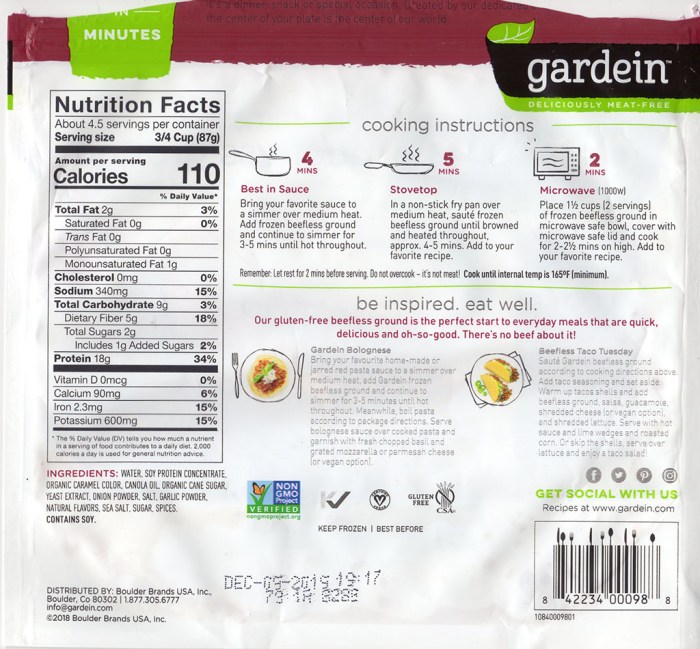Electrolyte Composition and Function
Gatorade zero nutrition facts – Gatorade Zero, marketed as a calorie-free sports drink, contains a blend of electrolytes designed to replenish those lost through sweat during physical activity. Understanding the types and quantities of these electrolytes, and how they compare to other sources, is crucial to assessing its effectiveness in supporting hydration and performance.Electrolytes are essential minerals that carry an electric charge when dissolved in fluids like blood and sweat.
They play a vital role in various bodily functions, including fluid balance, muscle contractions, nerve impulses, and hydration. The primary electrolytes found in Gatorade Zero are sodium and potassium, though the exact amounts can vary slightly depending on flavor.
Electrolyte Content of Gatorade Zero, Gatorade zero nutrition facts
Gatorade Zero typically contains a lower concentration of electrolytes compared to its calorie-containing counterparts. While the precise amounts are not always prominently displayed and may vary slightly depending on the specific flavor and batch, a typical serving generally provides a modest amount of sodium and potassium. This lower concentration reflects the goal of providing electrolyte replenishment without adding sugar or calories.
For example, a serving might contain approximately 100-150mg of sodium and 30-50mg of potassium. It’s important to consult the nutrition label on the specific product for the most accurate information.
Comparison to Other Sports Drinks and Natural Sources
Traditional sports drinks often contain significantly higher levels of sodium, potassium, and sometimes other electrolytes like magnesium and chloride, along with added sugars. This higher concentration is intended to rapidly replenish electrolytes lost during prolonged or intense exercise. In contrast, Gatorade Zero prioritizes electrolyte replenishment without the added sugars. Natural sources of electrolytes include fruits like bananas (rich in potassium) and vegetables like spinach (containing both potassium and sodium, though in smaller quantities than processed sports drinks).
The electrolyte profile of these natural sources differs significantly from both Gatorade Zero and traditional sports drinks; they typically offer a more balanced electrolyte profile within a broader range of nutrients.
Electrolyte Contribution to Fluid Balance and Muscle Function
Sodium and potassium are critical for maintaining proper fluid balance. Sodium helps regulate fluid volume in the body, while potassium assists in maintaining the balance of fluids within cells. During exercise, sweat loss depletes these electrolytes, leading to dehydration and potential muscle cramps. Replenishing these electrolytes through drinks like Gatorade Zero, or through a balanced diet, helps prevent dehydration and restore fluid balance.
Furthermore, these electrolytes are essential for proper muscle function. Sodium and potassium are involved in muscle contractions, enabling the muscles to work efficiently. Adequate electrolyte levels contribute to improved muscle performance and reduced risk of muscle cramps and fatigue during and after exercise.
Questions Often Asked: Gatorade Zero Nutrition Facts
Does Gatorade Zero contain any calories?
While marketed as “zero,” Gatorade Zero may contain trace amounts of calories due to rounding or variations in manufacturing. The calorie count is generally negligible.
Is Gatorade Zero suitable for people with diabetes?
While it’s sugar-free, individuals with diabetes should still consult their doctor before incorporating Gatorade Zero into their diet, as the artificial sweeteners may affect blood sugar levels differently in individuals. Careful monitoring is advised.
Can I drink Gatorade Zero every day?
Regular consumption of Gatorade Zero is generally not recommended for daily use unless engaging in strenuous physical activity requiring electrolyte replenishment. Plain water should be the primary source of hydration for most individuals.
What are the long-term effects of consuming artificial sweeteners?
The long-term health effects of artificial sweeteners are still under investigation. Some studies suggest potential links to various health issues, while others show no significant harm. More research is needed to draw definitive conclusions.
Is Gatorade Zero better than plain water for hydration?
Plain water is generally the best choice for hydration unless engaging in intense or prolonged exercise. Gatorade Zero provides electrolytes which can be beneficial during strenuous activity, but it shouldn’t replace water as the primary hydration source.
Gatorade Zero boasts zero sugar and calories, making it a popular choice for athletes. However, comparing its nutritional profile to something like whipped cream nutrition facts highlights the stark contrast in fat and sugar content. Ultimately, understanding both Gatorade Zero nutrition facts and the nutritional makeup of other treats helps make informed choices about hydration and overall dietary intake.


